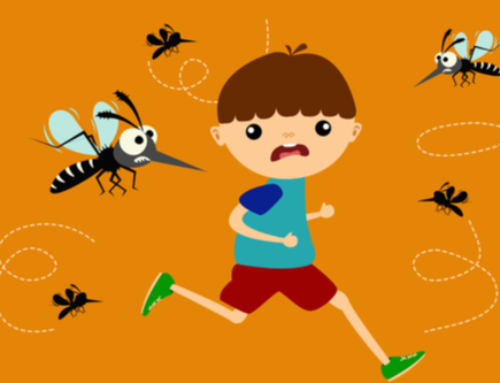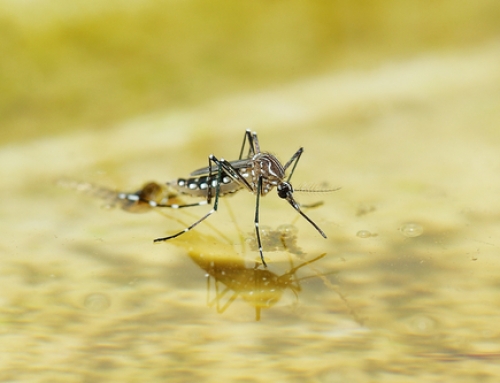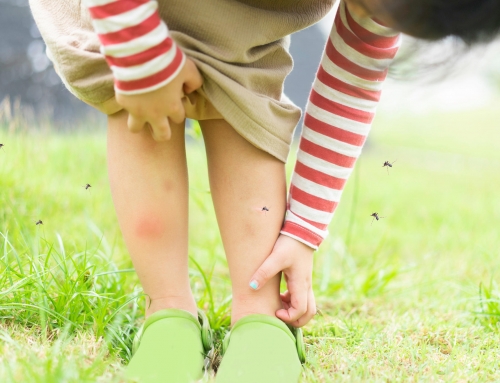How to Choose the Best Mosquito Control Method for Your Yard
Mosquitoes can be bothersome as well as transmitters of diseases like Malaria, West Nile virus, Dengue fever, Zika, etc. These insects can be controlled with various approaches, including insecticides and natural alternatives. Instead of DEET, you can use herbal repellents instead of zappers and essential oil sprays.
If your mosquito problem is too serious to manage on your own, we suggest hiring a professional pest control company to get rid of the mosquitoes.
Best Way To Repel Mosquitoes
You’re more likely to have a mosquito problem outside your yard than in your home, although having mosquitoes swarm around throughout the night might be annoying.
Mosquitoes that buzz around are more visible during the day than at night. If it’s late and you want to find them before they bite you, switch on a lamp, flashlight, or smartphone and wait for them to be drawn to the light.
Now, here are the most effective methods for mosquito repellents that have already bedded down on your property.
Chemical repellent
Traditional chemical mosquito repellents will keep mosquitoes away from you. You should look for insect repellents that include 30 to 50 percent DEET—the gold standard component.
There were some worries that DEET was not safe to use on human skin in the past. However, evaluations conducted by the Environmental Protection Agency determined that DEET still meets safety criteria when used appropriately.
DEET might have an effect on you for up to 12 hours. Adults should use a repellent containing 30 percent to 50 percent DEET, and children over two months should use a repellent containing 10 percent to 30 percent DEET. Infants under the age of two months should not be sprayed with repellent.
Plants and Herbs
Most insect-repelling herbs and plants do so through their natural aromas, which keep annoying mosquitoes at bay while also introducing lovely smells to your landscape. If you don’t want to use chemical insect sprays on yourself or your garden, you may cultivate some plants to help keep mosquitoes away naturally.
1. Citronella
Citronella grass (or lemongrass) is the most widely used natural component in insect repellants due to its strong odor. The Brooklyn Botanic Garden suggests lemon-scented plants like citronella grass keep mosquitoes away.
Additionally, the excellent thing is that the live plant is the most efficient bug repellent. This low-maintenance plant grows best in big pots because it cannot tolerate winter, but it may also be planted directly in the ground in warmer locations.
2. Catnip
Catnip is a wonderful insect repellent, which your feline pals will also appreciate! In fact, according to a 2009 study, catnip is 10 times more efficient than DEET, a prominent element in mosquito repellents.
It is a really simple plant to cultivate, and if you have cats, they will undoubtedly like having it around.
3. Basil
Want to get a double dose of mosquito protection? Grow some basil. You will have not only a fast and easy mosquito repellent but also a wonderful fresh herb to add to all of your favorite dishes.
There are many various types of basil available, so feel free to experiment and pick your favorite.
To prevent insects, many experienced gardeners prefer lemon basil or cinnamon basil. Plus, basil is one of the simplest plants to grow — even the most inexperienced gardener can do it.
4. Lavender
You’ve certainly heard of lavender, a beautiful purple blooming plant with a relaxing, tranquil aroma. Did you know that it is also a natural insect repellent? To keep pests at bay, grow them inside near a sunny window or outside your yard.
Make a delightful herbal tea, or use lavender to fill your house with a nice relaxing scent while you’re at it.
5. Garlic
Unfortunately for all of us who enjoy Italian cuisine, research has proven that consuming garlic does not repel mosquitoes. Sprinkle garlic in your flower bed or vegetable garden for further mosquito prevention.
Not only will you keep mosquitoes at bay, but you’ll also have an abundance of garlic to flavor your food and get the advantages of its great health benefits.
Attract Natural Predators
Predators won’t be able to dispose of your mosquito problem, but attracting them is worth a try if you’re only encountering a few annoying bugs.
Purple martins, ducks, swallows, and migrating songbirds, for example, are natural mosquito hunters. Bird feeders are an excellent technique to lure them. Putting up a bat house could also be advantageous.
If you have a pond, predators like goldfish, koi, and red-eared slider turtles can help.
Pools and Ponds Water Treatment
Use a larvicide dip or liquid larvicide and run the filter regularly if you can’t get rid of the standing water. To avoid mosquitoes from laying eggs in your pool, cover it at night and during the months when you aren’t using it.
BTI, a naturally occurring bacteria found in soil, produces toxins that target and kill mosquito larvae. It is non-toxic to humans and can be used to spruce up ponds, flowerpots, and birdbaths.
Bug Zapper
Zappers kill mosquitoes by electrocuting them. This approach can help you fry a few of these irritating insects, but it’s inefficient and risky—you might probably end up harming beneficial and harmless bugs.
Conclusion
While DIY approaches may yield some results, you should hire a professional pest control firm if you’re dealing with many mosquitoes. Generally, professional pest control firms have the knowledge and experience to destroy mosquitoes at all phases of their life cycle and are more educated about chemical safety measures.
We at Knockout Mosquito Systems in Charleston, SC are all you need, You may also get a free estimate by visiting our website, and one of our staff members will contact you immediately to discuss your needs and recommend the best options.






